Professor Green: Knife crime not just a black issue
- Published
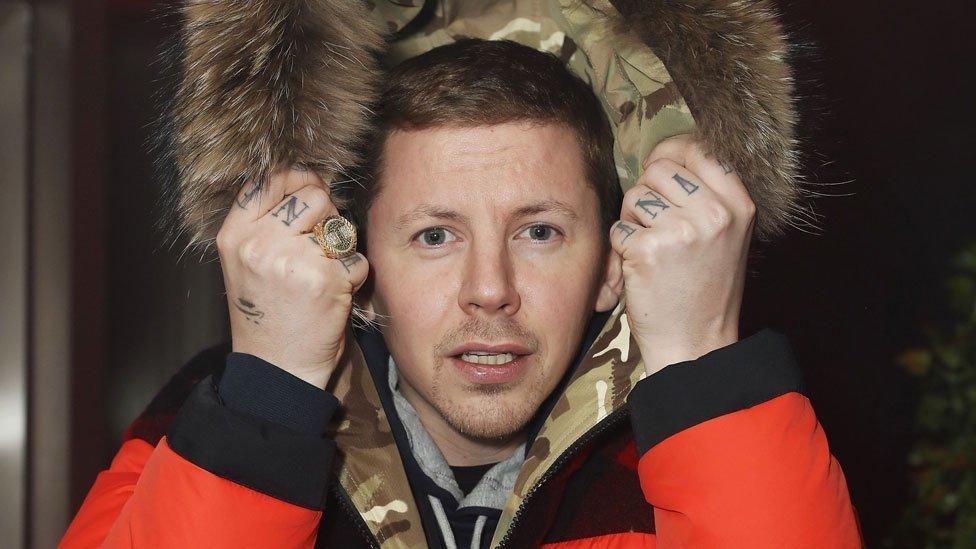
Professor Green has said black youths as a whole are being "criminalised" over recent stabbings - and that in some places "knife crime is white".
The rapper claimed the media had an "agenda" to "bring back racially-profiled stop and search" - but he does not think the practice works.
Green, who was stabbed in 2009, blamed poverty for the growing problem.
His comments come as a senior police officer said current rules on stop and search might be too restrictive.
Home Office minister Nick Hurd told the Commons on Monday there were "no plans" to "go back to random stop and search", but the government would look at ways to reduce bureaucracy around it.
Professor Green spoke out on Instagram, external after being asked about knife crime on Monday's Good Morning Britain.
He wrote: "There had been a lot of reference to a statistic that it's largely black youths stabbing each other - what was left out was that this is only true of certain areas, as anyone with a brain can work out, in more densely white populated areas, the face of knife crime is white.
"That's never represented in the media. The fact that the face of knife crime they project nationally is black youths, as I said this morning implies institutional racism and criminalises a whole race, fitting their agenda to bring back racially-profiled stop and search."
He said all stop and search achieved was to cause "more division, friction and lack of trust" of police.
While speaking on GMB, he added that while he was stabbed, he does not see himself as a victim.
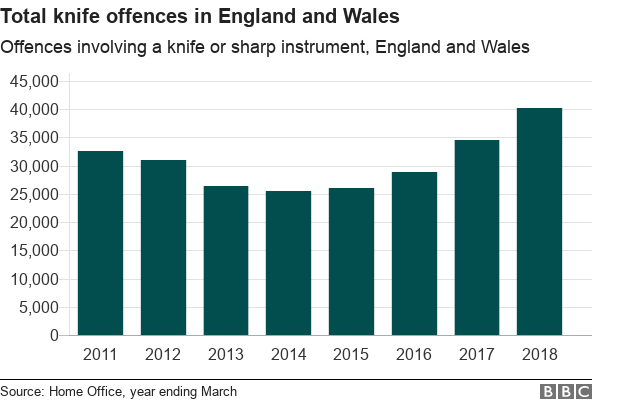
In London alone, there have been 119 homicides this year - including 69 fatal stabbings. Four of those happened in a five-day period this month.
Professor Green said knife crime had been "a growing problem for years with many different contributing factors", with "poverty at the top of the list".
"Years of neglect" have caused the current crisis, with social deprivation, lack of paternal role models, inequality in education and cuts to services all to blame, he added.
'No quick fix'
He said he agreed with Mayor of London Sadiq Khan's comment that it might take a generation to solve the problem of knife crime.
"Stop and search isn't going to be a quick fix," he added.
"Children should never get to the point of carrying a knife - but society needs to move on a hell of a lot before that will happen."
Meanwhile, Adrian Hanstock - the National Police Chiefs' Council lead on stop and search and deputy chief constable of British Transport Police - has suggested the threshold for stops to take place could be lowered.
He told BBC Radio 4's The World at One it was not currently a proposal, but discussions had been held about how to do things differently.
"What's behind this is there's a lot of call for officers up and down the country, not just in the cities, to use more stop and search to tackle violence," he said.
"We see every day knives and weapons and other items taken off the streets, and every one of those can save a life."
But Mr Hanstock added: "If we are to make longstanding impact on these causes of violence, police use of stop and search will not be the single answer to this."
Home Secretary Sajid Javid is expected to outline plans in the coming weeks to make stop and search more efficient and reduce the bureaucracy around it.
According to Home Office figures, external, there were 298,949 stop and searches carried out in England and Wales in the 2016-17 financial year. There were four for every 1,000 white people - compared with 29 for every 1,000 black people.
The most recent census, external, in 2011, showed 86% of the population was white, with black ethnic groups making up 3.3%.
- Published8 November 2018
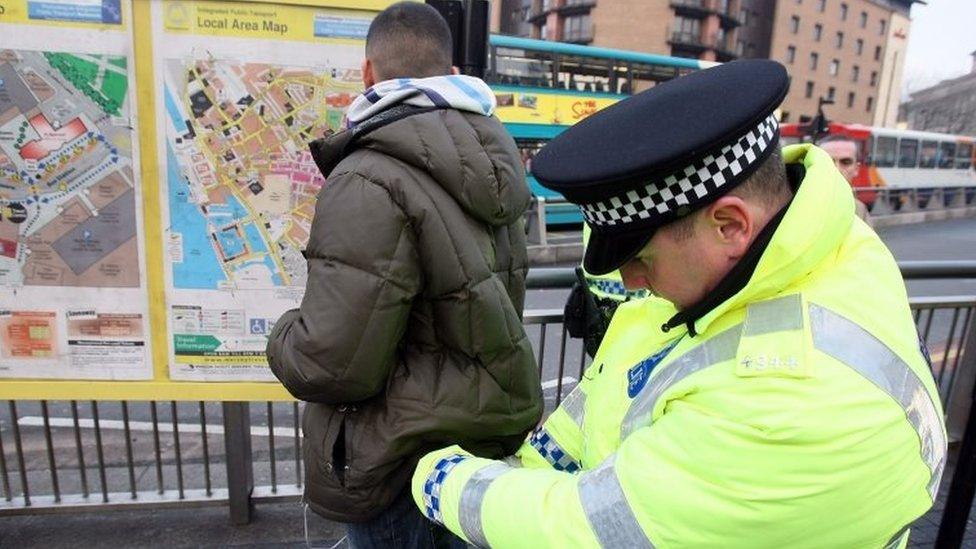
- Published18 July 2019
- Published2 November 2018
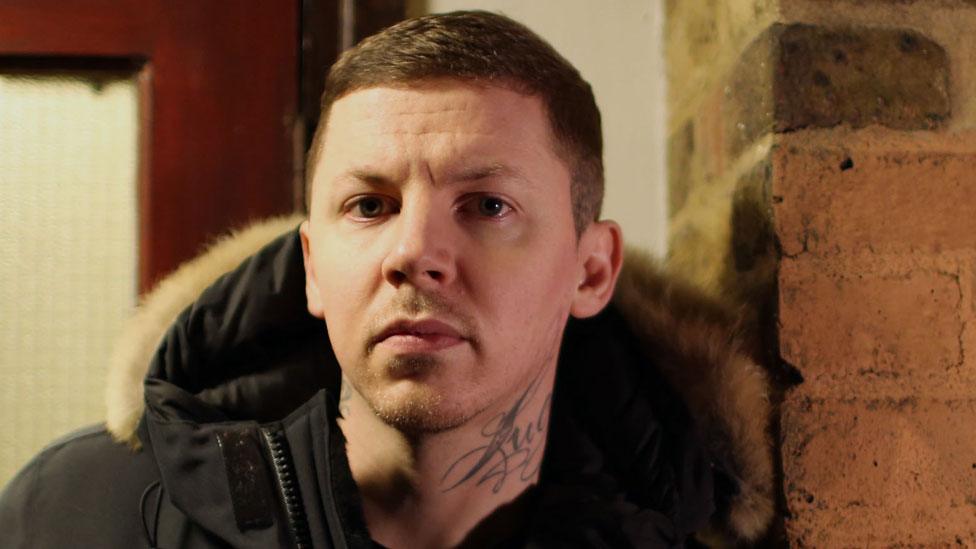
- Published1 November 2017
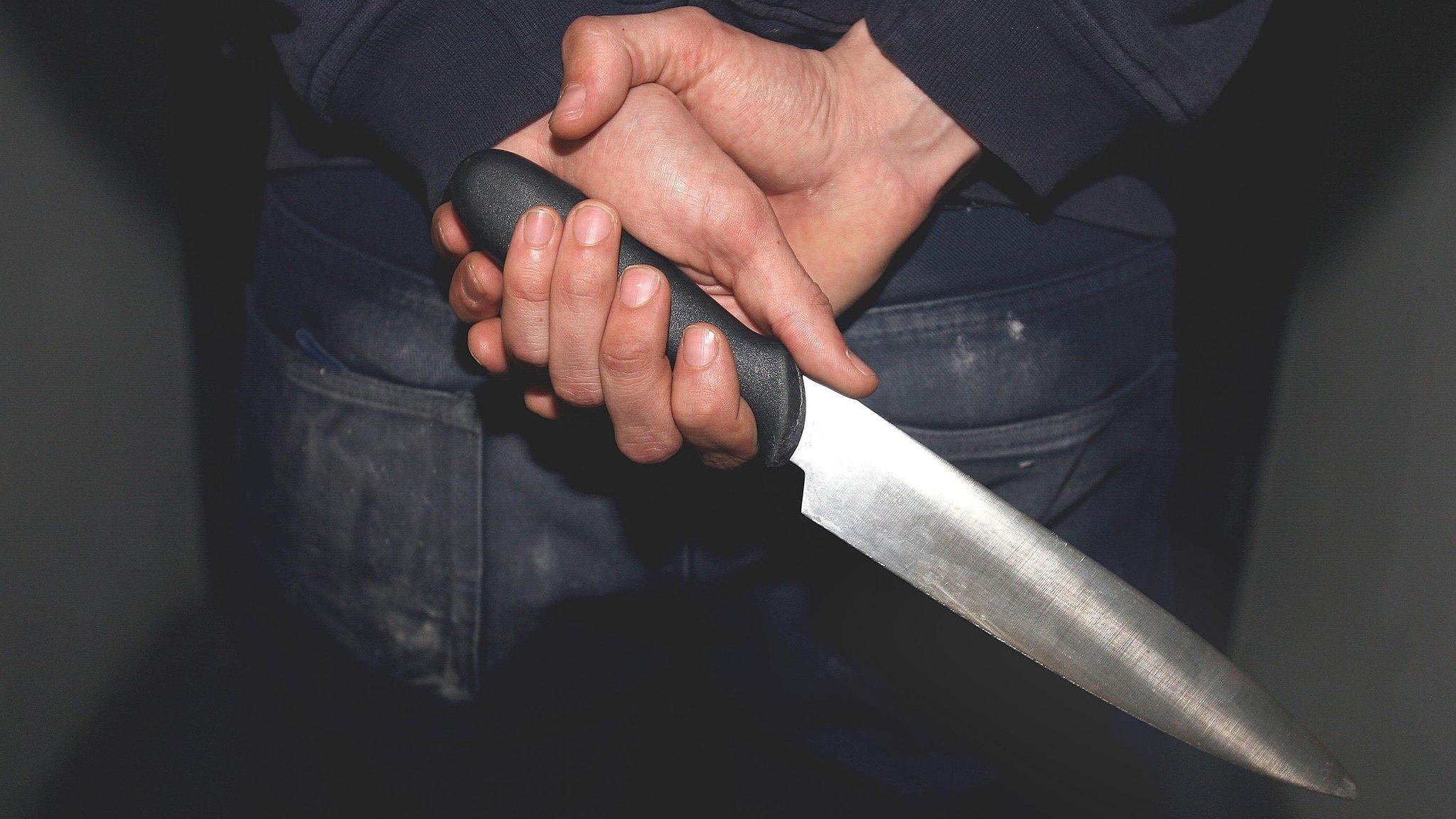
- Published4 April 2018
